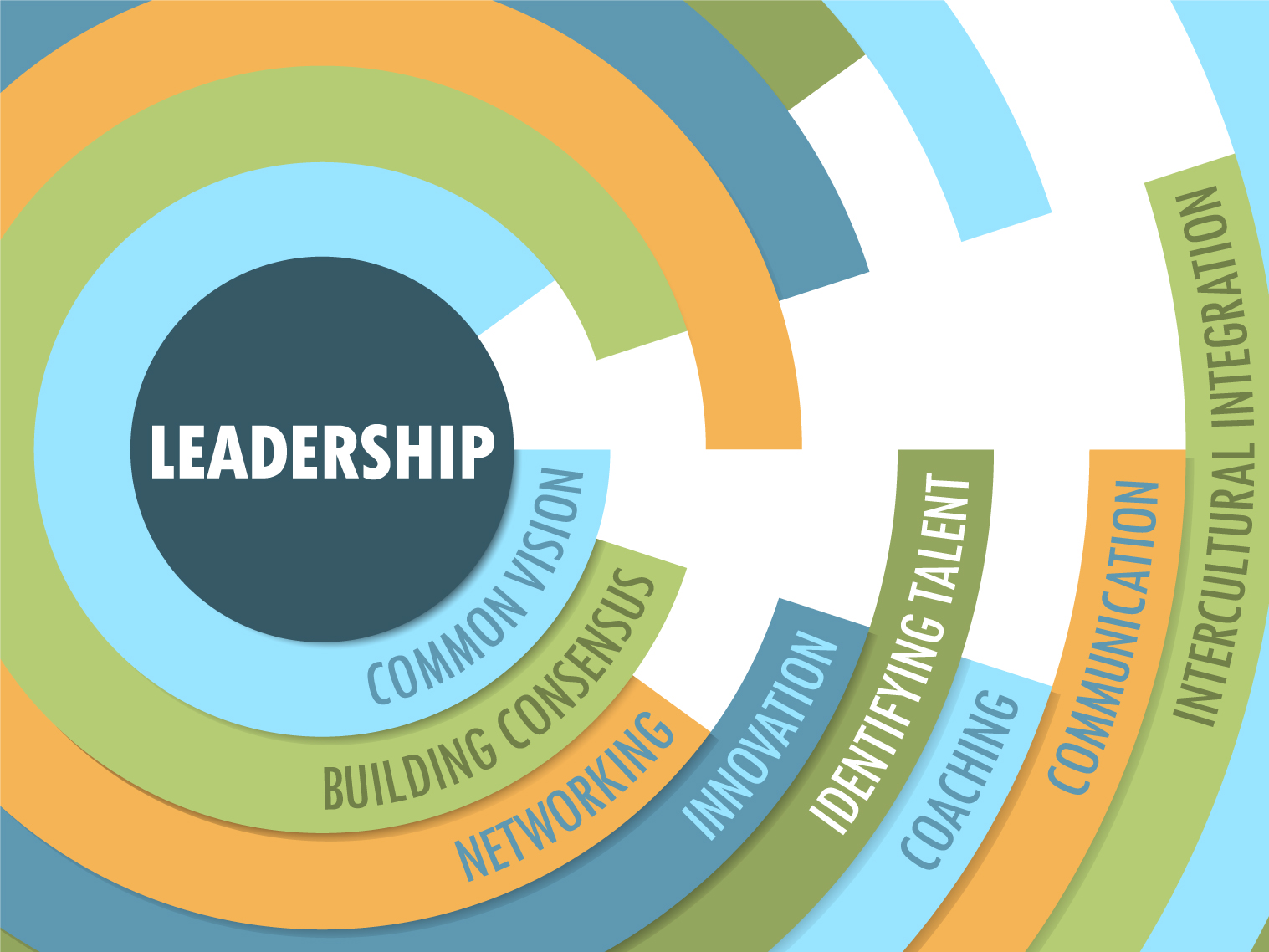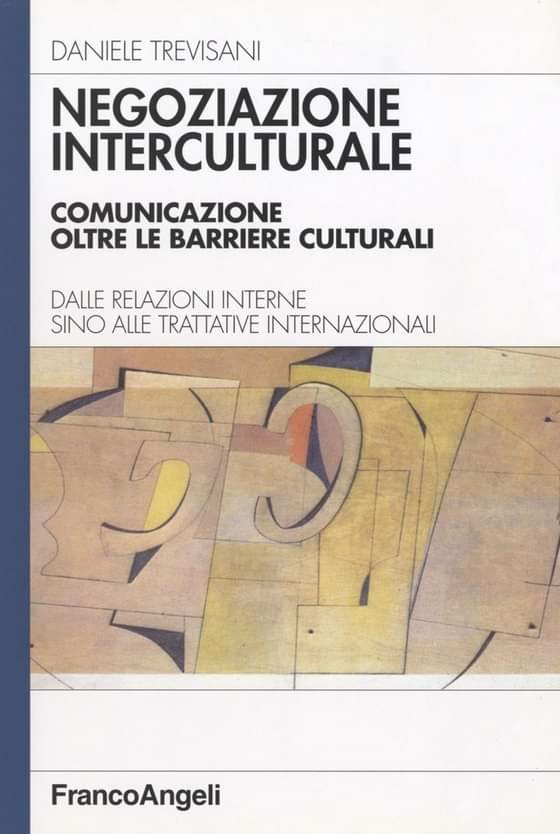Article written by Ginevra Bighini, www.interculturalnegotiation.wordpress.com; mentoring by Dr. Daniele Trevisani, www.studiotrevisani.com
__________
Today’s article will focus on intercultural leadership. Starting from the definition of the term, we will then proceed with listing and describing the problems that may arise in an intercultural team and the skills that every leader must possess if he/she wants to work in a cross-cultural environment.
First of all, I would like to use the definition from the website 3blmedia.com to explain the differences between cross-cultural leadership, multicultural leadership and intercultural leadership:
“Cross-cultural, multicultural, intercultural…these terms are often used interchangeably yet have finely nuanced distinctions. For a leader, the cross-cultural context means literally crossing cultures to do business, provide service, or vacation in another culture. Multicultural refers to multiple cultures existing in a geographic place or organization, each separate and distinct. Intercultural refers to the act of understanding the values and beliefs of a culture and being able to communicate and collaborate with people across multiple cultures. Interculturalism has as its goal innovation, inclusion, and friendship. Intercultural ism implies interaction.” (1)
let’s now continue with Wikipedia’s explanation of intercultural leadership:
“Intercultural leadership has been developed to understand leaders who work in the newly globalized market. Today’s international organizations require leaders who can adjust to different environments quickly and work with partners and employees of other cultures”. (2)
In other words, an intercultural leader must be able to:
- manage people from different cultures with cultural respect and an understanding attitude;
- achieve a common goal with his/her multicultural team.
Obviously, the problems that may arise in these cross-cultural contexts are numerous, for example:
- intercultural differences in verbal and non-verbal communication;
- communicative difficulties in the decision-making process, due to different cultural preferences for length of turns, pauses between turns, simultaneous talk, or discrete turns;
- poor group cohesion;
- etc.
Possible intercultural leadership challenges can be related to:
- different cultural view of leaders’ behaviours: cultures accept different leadership behaviours and have different opinions about what can be considered appropriate and inappropriate.
- Power paradox arousal: one part of the team questions the legitimacy and authority of the leader based on his leadership style.
- Different culturally-based leadership expectations: members of multicultural team hold different culturally-based leadership expectations and prefer different leadership styles.
- Team members’ culturally different reactions to leadership: team members from different cultures react differently towards the leader, based on the leader’s leadership style and on how a leader approaches them as team members. (3)
To overcome all this, intercultural communication skills are needed.
In fact, Intercultural management is more than just communicating, working and leading people across cultures. It is about interacting in a conscious and mindful way and it involves:
- the readiness to recognize our own cultural conditionings and to discover how we came to believe and see things the way we do. This helps us to realize and accept that our own way to see and judge things is just one among many;
- learning about the other person’s culture, including history, economy, political situation and all those aspects that help us understand the underlying reasons for someone’s behaviour, beyond our personal assumptions and values. This can provide a totally new perspective on a person or situation;
- the ability to reflect on how our behaviour may be perceived, interpreted and judged by someone from a different culture, as well as the maturity to recognize how we may be unintentionally contributing to a problem (and how we can contribute to solving it);
- the ability to adapt our behaviour in order to find a common ground with the people we work with, valuing cultural differences and co-creating new and better ways to do things. (4)
To conclude, in order to become global leaders, we cannot just learn how to manage a team or how to be charismatic, because that’s not sufficient. We are all living in a new globalized world, where everyone is forced to interact with many culturally different people, people with different opinions, values and beliefs, people that possess a different world view. All these people must work together to achieve greater results and only an intercultural leader, not a common manager, can help them do that.

Article written by Ginevra Bighini, www.interculturalnegotiation.wordpress.com; mentoring by Dr. Daniele Trevisani, www.studiotrevisani.com
__________
(1) https://www.3blmedia.com/News/Challenges-Intercultural-Leadership
(2) https://en.wikipedia.org/wiki/Cross-cultural_leadership
(3) https://edepot.wur.nl/496325
TAGS:
- ALM business method
- active training
- awareness of one’s role in negotiation
- Best coach in intercultural communication in the world
- Best coach in intercultural facilitation in the world
- Best coach in intercultural negotiation in the world
- Best Intercultural communication book
- Best world consultant in intercultural communication
- Best world consultant in intercultural negotiation
- Best world expert in intercultural communication
- Best world expert in intercultural negotiation
- Best world trainer in intercultural communication
- Best world trainer in intercultural negotiation
- Best Intercultural negotiation book
- book on intercultural communication
- book on intercultural negotiation communication
- communication difficulties
- communication skills
- Communication techniques intercultural communication
- Communication techniques intercultural negotiation
- communication training
- conversational skills
- creative strategies
- cross cultural communication
- cross cultural misunderstanding
- cross-cultural adaptation
- cultural systems
- dialogue between companies
- different cultural approach
- different cultural context
- direct line of communication
- disagreements
- Effective intercultural negotiation techniques
- face-to-face communication
- front-line communication
- high-context cultures
- How cultural differences affect negotiations?
- How does culture influence negotiation?
- intercultural communication
- intercultural communication book
- Intercultural communication books
- Intercultural Communication Coaching
- intercultural communication pdf
- Intercultural Communication Trainers
- Intercultural Communication Training
- Intercultural conversation management techniques
- Intercultural Negotiation
- Intercultural negotiation books
- Intercultural Negotiation Coach
- Intercultural Negotiation Coaching
- Intercultural Negotiation Communication
- Intercultural Negotiation Consultant
- Intercultural Negotiation Consulting
- Intercultural Negotiation Counselling
- intercultural negotiation definition
- Intercultural negotiation exercises
- Intercultural Negotiation in International Business
- Intercultural Negotiation Mentoring
- intercultural negotiation PDF
- Intercultural Negotiation Process
- Intercultural Negotiation Strategies
- Intercultural Negotiation Timing
- intercultural negotiation training
- intercultural training
- Intercultural Training Consultants
- know-how
- low-context cultures
- misunderstandings
- negotiating rules
- negotiation preparation
- negotiator’s emotional awareness
- negotiator’s growth
- open communication
- transparent communication
- What are the 5 stages of negotiation?
- What is effective intercultural negotiation?
- What is intercultural negotiation?
- working on attitudes
- working on skills
- World’s most famous expert in intercultural communication
- World’s most famous expert in intercultural negotiation
- Intercultural Leadership
- Cross-cultural Leadership
- Multicultural Leadership
- intercultural differences in verbal and non-verbal communication
- communicative difficulties in the decision-making process
- poor group cohesion
- different cultural view of leaders’ behaviours
- Power paradox arousal
- Different culturally-based leadership expectations
- Team members’ culturally different reactions to leadership





